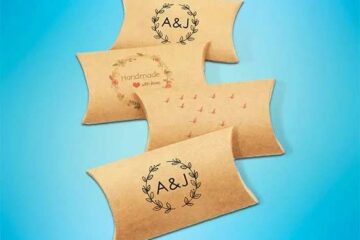India’s textile industry is one of the oldest and most prominent sectors, contributing significantly to the country’s economy. It plays a vital role in employment generation, export earnings, and technological advancements. The collaboration between textile manufacturers in India and fabric supplier India networks ensures consistent growth and global competitiveness.
In this article, we’ll explore how textile manufacturers contribute to India’s economic development and why fabric suppliers are essential partners in this journey.
India’s Textile Industry: An Overview
The textile industry in India is diverse and vast, encompassing everything from traditional handloom techniques to advanced manufacturing units. Here’s a quick overview:
1. Key Economic Contributor
- Accounts for approximately 15% of India’s export earnings.
- Contributes around 2% to the country’s GDP.
2. Employment Generator
- Provides direct employment to over 45 million people.
- Indirectly supports more than 60 million livelihoods through allied industries.
3. Global Leader
- India is the second-largest producer of textiles and garments globally.
- Known for producing high-quality cotton, silk, and synthetic fabrics.
How Textile Manufacturers Drive Economic Growth
1. Boosting Exports
India’s textile manufacturers are key players in the global market, supplying fabrics to major brands and retailers worldwide.
- High-Quality Production: Adherence to global standards makes Indian textiles a preferred choice for international buyers.
- Diverse Product Range: From traditional textiles to technical fabrics, India caters to a wide variety of demands.
2. Promoting Sustainability
Many manufacturers are adopting eco-friendly practices to meet the growing demand for sustainable fashion and home textiles.
- Organic Cotton Production: India is one of the largest producers of organic cotton, promoting environmentally friendly practices.
- Recycling Initiatives: Several manufacturers are investing in recycling technologies to reduce waste.
3. Technological Advancements
The integration of modern technology in textile manufacturing enhances efficiency and quality.
- Automation: Advanced machinery reduces production time and costs.
- Digital Printing: Enables intricate designs with precision and minimal wastage.
4. Supporting Allied Industries
Textile manufacturing supports allied industries such as agriculture, logistics, and retail, creating a ripple effect in the economy.
The Role of Fabric Suppliers in India
Fabric suppliers bridge the gap between textile manufacturers and end-users, ensuring the smooth flow of high-quality raw materials.
1. Ensuring Raw Material Availability
Fabric suppliers provide manufacturers with the necessary materials, including cotton, silk, and synthetic fabrics, in a timely manner.
2. Maintaining Quality Standards
Suppliers work closely with manufacturers to ensure that the materials meet industry standards, building trust and reliability.
3. Supporting Small Businesses
By offering smaller quantities and flexible options, fabric suppliers empower small-scale textile manufacturers to thrive.
4. Enabling Export Growth
Suppliers with global connections help manufacturers tap into international markets, boosting India’s export potential.
Challenges Faced by Textile Manufacturers in India
Despite its growth, the textile industry faces several challenges:
1. Fluctuating Raw Material Costs
The prices of raw materials like cotton and silk often vary, impacting profitability.
2. Intense Competition
Countries like China and Bangladesh offer competitive pricing, posing challenges for Indian manufacturers.
3. Sustainability Pressures
Adopting eco-friendly practices requires significant investment, which can be a barrier for small manufacturers.
4. Supply Chain Disruptions
Logistics issues, especially during global crises, can delay production and deliveries.
How Fabric Suppliers Help Overcome Challenges
Fabric suppliers play a critical role in addressing these challenges:
- Stable Pricing: By sourcing directly from farmers and producers, suppliers can offer competitive and stable prices.
- Streamlined Logistics: Many suppliers provide end-to-end solutions, ensuring timely delivery of raw materials.
- Eco-Friendly Options: Suppliers offer sustainable materials like organic cotton, catering to the demand for green products.
- Global Reach: Fabric suppliers with international networks help manufacturers expand their market presence.
Top Textile Manufacturing Hubs in India
Several regions in India are known for their expertise in textile manufacturing:
1. Gujarat
- Specializes in cotton and synthetic fabrics.
- Home to major textile hubs like Surat and Ahmedabad.
2. Tamil Nadu
- Known for its spinning mills and garment manufacturing.
- Tirupur is a leading hub for knitwear exports.
3. Maharashtra
- Focuses on cotton and silk production.
- Mumbai is a major hub for textile trading.
4. Punjab
- Renowned for woolen and cotton textiles.
- Ludhiana is a key center for hosiery and knitwear.
The Future of Textile Manufacturing in India
The future of India’s textile industry looks promising, driven by:
- Government Initiatives
- Policies like the Production Linked Incentive (PLI) scheme aim to boost textile exports.
- Investments in textile parks provide infrastructure support for manufacturers.
- Digital Transformation
- Adoption of AI and IoT in manufacturing processes enhances efficiency.
- Online platforms make it easier for manufacturers to connect with global buyers.
- Sustainability Trends
- Increased demand for organic and recycled textiles drives innovation in eco-friendly production.
- Global Demand
- Rising demand for Indian textiles in emerging markets presents new growth opportunities.
Tips for Choosing a Reliable Fabric Supplier
- Check Certifications: Look for suppliers with certifications like ISO or GOTS.
- Read Reviews: Customer feedback can provide insights into the supplier’s reliability.
- Request Samples: Evaluate the quality of materials before placing bulk orders.
- Understand Policies: Ensure clarity on shipping, return, and refund policies.
Conclusion
India’s textile manufacturers are the backbone of the country’s economy, driving growth, employment, and innovation. Their collaboration with fabric supplier India networks ensures a steady supply of high-quality raw materials, enabling the industry to meet global demands.
By overcoming challenges and embracing technological advancements, India’s textile industry is poised for continued growth. Whether you’re sourcing fabrics for a small business or a large enterprise, partnering with reliable manufacturers and suppliers is key to success.
Explore trusted platforms like TEXchange Global and IndiaMART to connect with the best in the industry and take your textile sourcing experience to the next level.



0 Comments